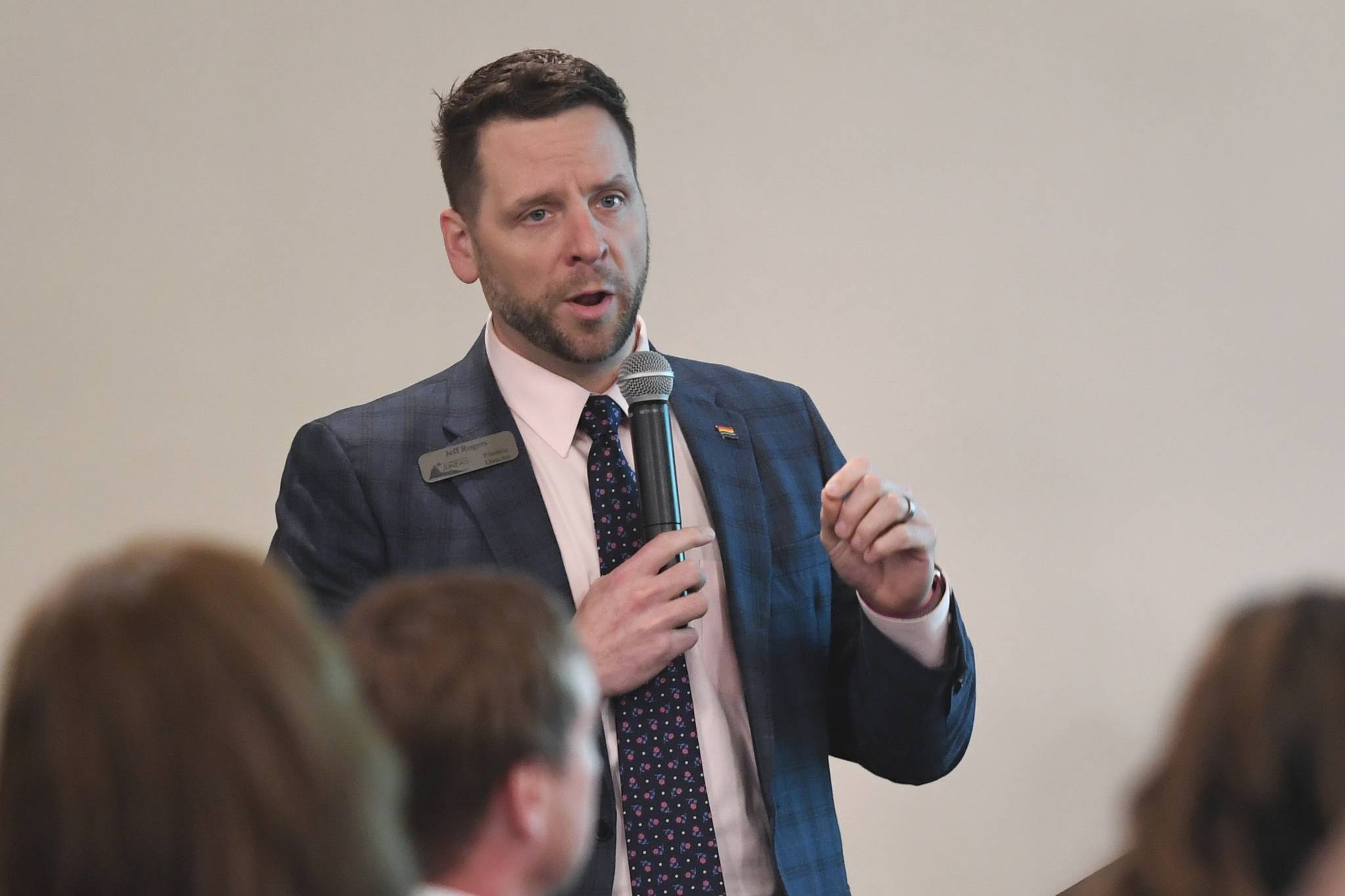Alaskans might soon have to pay local sales tax on that flashy new gadget or jacket they bought from on online retailer, like Amazon, due to new remote seller taxes currently under consideration.
On Monday, the City and Borough of Juneau Assembly authorized the city to join the Alaska Remote Sales Tax Commission, a group formed by the Alaska Municipal League to determine what a remote sales tax might look like for Alaska.
City Finance Director Jeff Rogers on Thursday walked the Juneau Chamber of Commerce Luncheon at the Moose Lodge through the details of how municipalities in the state might collect these taxes, if they so choose.
A 2018 U.S. Supreme Court case, South Dakota v. Wayfair, found that local jurisdictions could collect taxes on remote sales. Remote sales are those that are made through online vendors, by phone, or by mail.
Because the State of Alaska has no statewide sales tax itself but does allow for local municipalities to set and collect their own taxes, it makes the implementation of a set of rules compliant with the Wayfair decision complicated, hence the creation of the commission.
With Juneau now a member, followed closely by Kenai, the commission will now establish a common sales participation format that is consistent with Wayfair, according to Nils Andreassen, executive director at Alaska Municipal League.
“It’s local governments that have the constitutional standing,” Andreassen told the Empire Thursday. “They’re delegating some of their duties to (AML).”
Andreassen said that one of the provisions of Wayfair was there not be undue burden on the vendors. According to the text of the Wayfair decision, not having undue burden, “requires a single, state level tax administration, uniform definitions of products and services, simplified tax rate structures, and other uniform rules. It also provides sellers access to sales tax administration software paid for by the State.”
Local municipalities will still be able to set their own tax rates and exemptions, but issues such as how vendors have to pay and who has to pay must be true across Alaska.
The final details of the statewide provisions will be finalized at the end of the month, Rogers said, and that process will result in the commission creating an Alaska Intergovernmental Remote Seller Sales Tax Agreement. Once the details are settled, municipalities will be free to set their own rates and exemptions.
So how will companies actually pay the tax?
“There’s an app for that,” Rogers told the crowd. “The vendor is a key piece for every state that have implemented taxes on remote sellers.”
The commission has begun negotiations with a company called MuniRevs, which has already been collecting remote sales taxes in other states. It was the company’s work in Colorado which attracted the commission.
Andreassen said Colorado has 70 home-rule jurisdictions, such as towns or counties, which all set their own tax rates, similar to Alaska (though Alaska has 106, according to Andreassen.)
“They’re very accommodating with the variations within the (tax) system. They work well with jurisdictions, and they’re the most affordable option for Alaska,” Andreassen said.
MuniRevs takes a cut of the sales, about 8 percent, according to AML’s estimates, but it’s a price Rogers thinks is worth paying.
“(The tax office) did its own kind of ‘napkin math’ on how much sales tax could be collected,” Rogers said, “it’s about $1.5-2 million. MuniRevs did their own estimate and came up with $3-5 million.”
Whatever the final amount of tax revenue will be, Rogers said he doesn’t believe municipalities will see the full amount for the first couple of years as the program finds its footing.
There are a number of technical details the commission needs to work on, and local municipalities will have to make revisions to their tax codes to provide for the change. But it’s possible that consumers could start seeing these taxes applied to their online purchases as soon as February or March 2020.
Once jurisdictions have passed legislation on their remote seller tax rates, “MuniRevs will be able to flip the switch and start communicating with vendors which are subject to the tax,” Rogers said.
MuniRevs already has a network of vendors in place, Rogers said, and can notify those vendors immediately. If companies want to do business in the state, they’ll have to opt-in to MuniRevs’ program. That’s why it’s important the commission have enough municipalities signed on to give it legal standing.
“The reality is if they do business in the state, they won’t have any choice but to opt in, and we have legal standing to do that under the Wayfair decision,” Rogers said. “We can simply require that they collect and remit sales tax, and we can take legal action to get them to remit sales taxes.”
• Contact reporter Peter Segall at 523-2228 or psegall@juneauempire.com.

